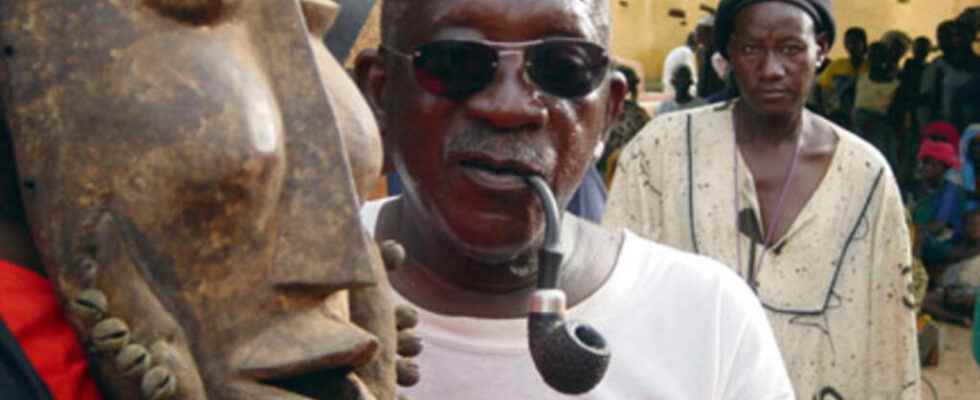On the occasion of the reissue of Sembène Ousmane’s novel O country, my beautiful people, Way of writing interviewed the young Senegalese writer Elgas on the romantic art of his compatriot considered as one of the founders of the French-speaking African novel. Sembene, who would have been a hundred years old on January 1, 2023, was a novelist, short story writer, but also a filmmaker. Elgas looks back on the journey of this multi-talented man and how he continues to inspire the younger generation of writers.
Elgas, when you are Senegalese and have literary ambitions like you do, how do you view Sembène Ousmane?
Elgas : Sembene is a founding father in several ways. And me, it’s true that very quickly, I developed a great admiration for Sembène because first of all we have in common the region of Ziguinchor where we come from. Very quickly, I was fascinated by his career because when he arrived in France, he was a dockworker. Then he worked in handling before converting to literature and towards the end of his life in cinema. Moreover, we know him much more as a filmmaker. And then, another echo: like me, he published his first texts at Présence Africaine. Sembène is an author who has explored Senegalese society in its many corners and who has a look that is both very mature, mature, serious on the colonial question, but also on the question of African societies and their future. Then, the environment in which he bathed led him to feel a great admiration for the classical style, for writing, a passion for literature. All this makes him a sort of sanctuary for young aspiring writers.
O country, my beautiful people is his second novel. It appeared in 1957. Under what circumstances did you discover this novel?
Personally, I discovered it quite late. The book already had a certain notoriety in Senegal. Already, when you are at school or high school, the title of the book does not leave you indifferent. But I read it very late, I read it after having watched almost all of Sembène’s films. Later, the first book by Sembene that I read was God’s Pieces of Woodbut when I read O country, my beautiful people, I found particularly interesting echoes with some of my ambitions. In any case, when I write, he is my model by his way of grasping society, of opening the eyes a little, of bringing down the veil and of painting all the complexities that there is in this colonial encounter. . He had the ability both to look at what colonization could have produced in terms of alienation, as a force of domination, but also to look precisely at certain traditions in which he tried to clean up. We find this approach in all his work. Neither in his films, nor in his books, can we reproach him for having taken simplistic steps. Each time, he empowered readers. And I also think that this is one of his greatest legacies for his readers and for future generations of authors.
In the novel O country, my beautiful people, there is this amazing character of Omar Faye. How would you define this character?
It’s true that he’s a key character, but we can’t understand this character if we don’t take into account his return trip. In O country, my beautiful people, there is this process of returning home, with a white wife and diving into the family universe. This universe is made up of ancestors, patriarchs who hold on to tradition and young people who have seen other things and who are trying to challenge tradition. But I think conflicts are natural. It’s not the conflicts that the novel brings out, it’s the conflicts that exist in society. All intelligence now, literary or romantic, is to manage to capture them. Moreover, giving birth to the idea of conflict within a family entity, between a father and his son for example, is something that we find in literature since the Greek tragedy and no doubt since much earlier. I maintain that these are not real quarrels, but literary quarrels whose objective is to give readers instruments to be able to precisely adjust their choice or their vision of the world. In doing so, the novel continues its approach, which is to question the blind spots and the unthought.
Finally, it has been said a lot that the writers of the Sembène generation were committed novelists. What was the meaning of their commitment?
Commitment is indeed the big question that runs through African letters. Sembene, yes, he was engaged. It was a badly licked bear. He was grumpy, he was a brawler. His cinema and his literature have that political stuff. If we give in to easy categorisations, we can effectively say that Sembène’s literature is engaged. But I think that any act of creation is an engagement or a disengagement, which amounts precisely to holding a political discourse or a political silence.
O country, my beautiful people, by Sembene Ousmane. Les Presses de la cité (reissue), 2022
